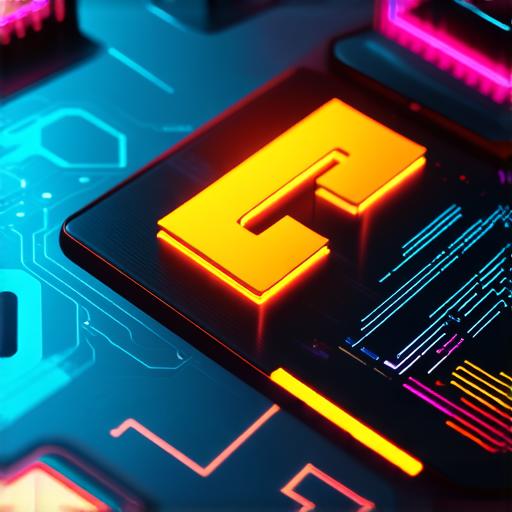
Exploring the Role of Blockchain Developers/Engineers: What Do They Do?
What are Blockchains?
A blockchain is a type of database that is managed by a network of computers. It is decentralized, meaning there is no central authority controlling the network. Instead, each computer in the network maintains a copy of the entire blockchain, and consensus is achieved through a process known as mining.
Mining involves solving complex mathematical problems to validate transactions and add new blocks to the chain. Once a block is added to the chain, it becomes part of the permanent record and cannot be altered or deleted.
What are Blockchain Developers?
Blockchain developers are responsible for designing, building, and maintaining blockchain-based applications (dApps) and smart contracts. They work with a variety of technologies, including cryptography, distributed systems, and consensus algorithms, to create secure and scalable blockchain systems.
Blockchain developers have a wide range of responsibilities, from designing the architecture of a blockchain system to writing code for dApps and smart contracts.
Skills Needed for Blockchain Development
Becoming a blockchain developer requires a combination of technical and soft skills. Here are some of the most important ones:
-
Programming Languages – A strong foundation in programming languages like Java, C++, Python, Solidity, and Vyper is essential for building blockchain applications.
-
Cryptography – Understanding cryptography principles and techniques is crucial for securing data on a blockchain.
-
Distributed Systems – Knowledge of distributed systems concepts like consensus algorithms, nodes, and networks is necessary for building scalable and fault-tolerant blockchain systems.
-
Smart Contract Development – Creating smart contracts that can execute automatically on a blockchain requires expertise in Solidity and Vyper programming languages.
-
Cloud Computing – Understanding cloud computing platforms like AWS, Azure, and Google Cloud is important for deploying and managing blockchain applications.
-
Communication Skills – Blockchain developers need to be able to communicate effectively with clients, stakeholders, and other team members.

Case Studies: Real-life Applications of Blockchain Developers
Now that we understand the skills needed to be a blockchain developer let’s explore some real-life examples of how they are applied in practice.
1. Ethereum Smart Contract Development
Ethereum is the most popular blockchain platform for building dApps and smart contracts. Blockchain developers use Solidity, a programming language specifically designed for smart contracts on Ethereum, to create decentralized applications that can execute automatically on the network.
-
OpenZeppelin – A security audit firm that uses smart contracts to help clients identify and fix vulnerabilities in their blockchain applications.
-
Balanc3 – An open-source platform for managing supply chain transparency using blockchain technology. It uses smart contracts to ensure the authenticity of products and track their journey from production to delivery.
1. Bitcoin Development
Bitcoin is the first and most well-known cryptocurrency, and it runs on its own blockchain called the Bitcoin Network. The development team responsible for maintaining the Bitcoin Network includes a group of software developers who work on improving the network’s security, performance, and scalability.
-
Maintaining the core codebase – The development team is responsible for maintaining the core codebase that powers the Bitcoin network, including the blockchain protocol, consensus mechanisms, and transaction validation processes.
-
Developing new features – The development team also works on developing new features and improvements to the Bitcoin network, such as better privacy and scalability solutions.
1. Hyperledger Development
Hyperledger is an open-source blockchain platform that was created by IBM to enable businesses to build secure and transparent supply chain systems. The development team responsible for maintaining the Hyperledger platform includes a group of software developers who work on improving the platform’s security, performance, and scalability.
-
Maintaining the core codebase – The development team is responsible for maintaining the core codebase that powers the Hyperledger platform, including the blockchain protocol, consensus mechanisms, and transaction validation processes.
-
Developing new features – The development team also works on developing new features and improvements to the Hyperledger platform, such as better privacy and scalability solutions.
1. Ripple Development
Ripple is a cryptocurrency that was designed specifically for businesses to use in cross-border payments. It runs on its own blockchain called the Ripple Network, which is designed to be fast, secure, and scalable. The development team responsible for maintaining the Ripple platform includes a group of software developers who work on improving the network’s security, performance, and scalability.
-
Maintaining the core codebase – The development team is responsible for maintaining the core codebase that powers the Ripple network, including the blockchain protocol, consensus mechanisms, and transaction validation processes.
-
Developing new features – The development team also works on developing new features and improvements to the Ripple platform, such as better privacy and scalability solutions.
1. Conclusion
Blockchain technology is still in its early stages, but it has already shown significant potential for providing secure and transparent data sharing without the need for intermediaries like banks or governments. Blockchain developers play a critical role in bringing this technology to life by designing, building, and maintaining blockchain-based applications and smart contracts that can be used in a variety of industries. As blockchain technology continues to evolve, the demand for skilled blockchain developers is only going to grow.



